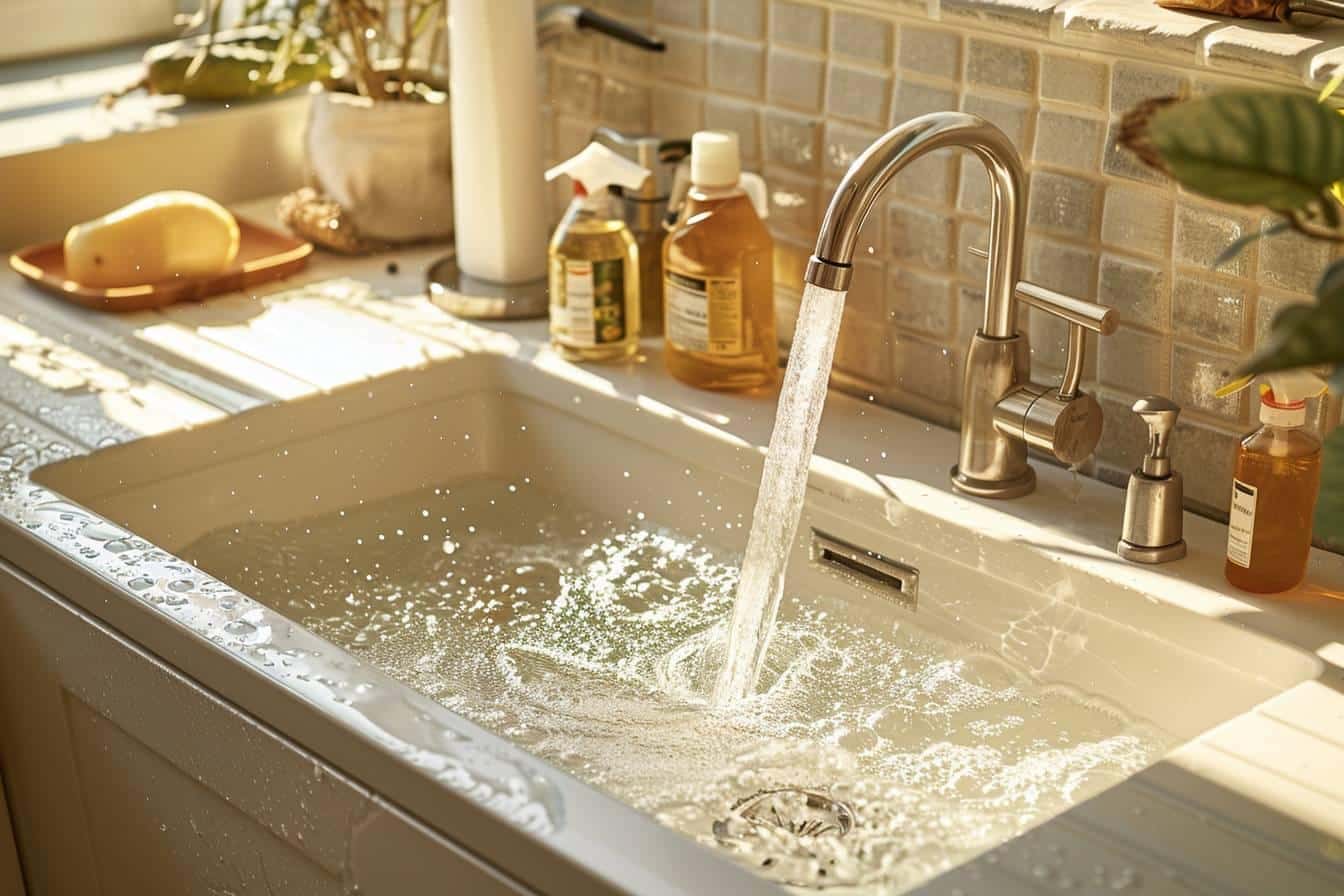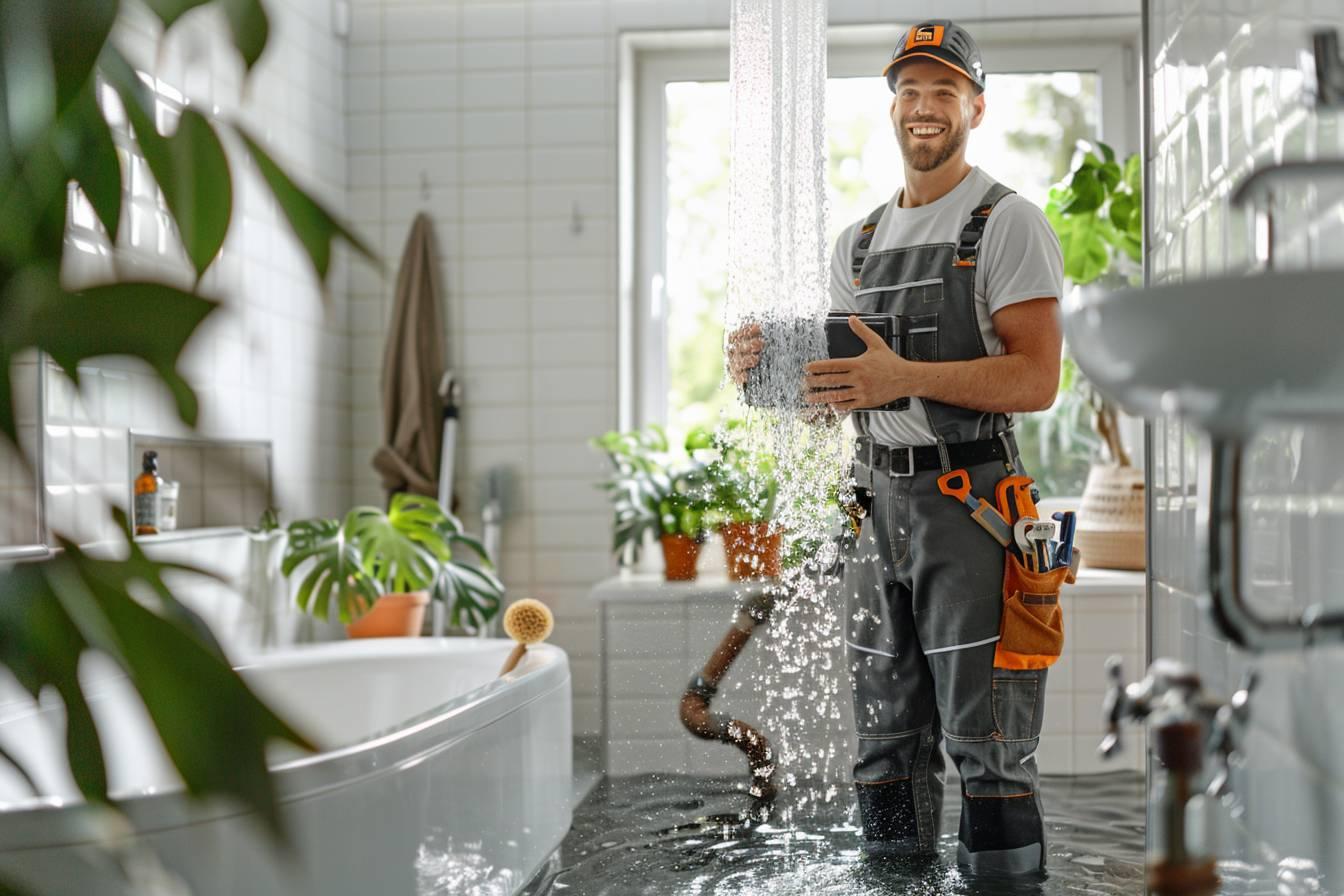Unpleasant odors emanating from drains and pipes can be a persistent nuisance in any home. These foul smells not only affect the overall ambiance but can also indicate underlying plumbing issues. Tackling sewer odors effectively requires a combination of preventive measures and targeted solutions. This comprehensive guide will explore expert strategies to eliminate drain odors and maintain fresh-smelling pipes throughout your home.
Identifying the sources of sewer odors
Before diving into solutions, it’s crucial to understand the origins of drain odors. Sewer smells in homes typically stem from various sources, each requiring a specific approach to address effectively. Common culprits include :
- Dry P-traps
- Clogged drains
- Bacterial growth
- Damaged pipes
- Sewer line issues
Dry P-traps are a frequent cause of unpleasant odors. These U-shaped pipe sections beneath sinks and other fixtures are designed to hold water, creating a seal that prevents sewer gases from entering your home. When fixtures are unused for extended periods, the water in P-traps can evaporate, allowing odors to seep through.
Clogged drains are another common source of foul smells. Accumulated debris, such as hair, soap scum, and food particles, can create blockages that trap odor-causing bacteria. These clogs not only produce unpleasant aromas but can also lead to more severe plumbing problems if left unaddressed.
Bacterial growth within pipes is a persistent issue, especially in warm, moist environments. These microorganisms feed on organic matter trapped in drains, producing sulfuric compounds that emit characteristic rotten egg odors. Regular cleaning and maintenance are essential to keep bacterial populations in check and prevent odor buildup.
Effective techniques for eliminating drain odors
Combating sewer smells requires a multi-faceted approach. Here are some proven methods to banish unpleasant odors and keep your drains fresh :
- Flush P-traps regularly : Run water through all fixtures, including rarely used ones, for a few minutes each week to maintain the water seal in P-traps.
- Use natural cleaning solutions : A mixture of baking soda and vinegar can effectively clean and deodorize drains. Pour 1/2 cup of baking soda followed by 1/2 cup of vinegar down the drain, let it sit for 15 minutes, then flush with hot water.
- Deploy enzymatic cleaners : These biological agents contain beneficial bacteria that break down organic matter in pipes, eliminating odor-causing substances.
- Employ mechanical cleaning methods : Use a plumber’s snake or drain auger to remove stubborn clogs and buildup that can harbor odor-producing bacteria.
For persistent odors, consider professional hydro jetting services. This powerful cleaning method uses high-pressure water to scour pipe interiors, removing even the most stubborn deposits and restoring optimal flow.
Implementing a regular maintenance schedule is crucial for long-term odor prevention. Create a monthly reminder to clean all drains in your home, alternating between natural solutions and enzymatic cleaners to maintain a fresh-smelling plumbing system.

Preventing future sewer odors
Proactive measures can significantly reduce the likelihood of recurring drain odors. Consider the following strategies to maintain a fresh-smelling home :
| Prevention Method | Benefits |
|---|---|
| Install drain screens | Captures debris before it enters pipes |
| Use garbage disposals sparingly | Reduces organic waste accumulation in pipes |
| Schedule annual plumbing inspections | Identifies potential issues before they cause odors |
| Maintain proper ventilation | Ensures efficient air circulation in plumbing systems |
Proper waste disposal practices play a crucial role in preventing drain odors. Avoid flushing non-biodegradable items down toilets and refrain from pouring grease or oil down kitchen sinks. These substances can accumulate in pipes, creating blockages and fostering bacterial growth.
Consider installing water-saving fixtures, such as low-flow showerheads and faucet aerators. These devices not only conserve water but also help maintain adequate water pressure in pipes, reducing the likelihood of stagnant water and associated odors.
Regular inspection of visible plumbing components can help identify potential issues early. Check for signs of leaks, corrosion, or damage around pipe joints and connections. Promptly addressing these problems can prevent more serious complications and associated odors down the line.
Advanced solutions for persistent odor problems
In cases where standard methods fail to eliminate sewer odors, more advanced solutions may be necessary. These techniques often require professional expertise but can provide long-lasting relief from persistent smell issues :
- Video pipe inspection : Plumbers use specialized cameras to visually inspect the interior of pipes, identifying hidden damage or blockages that may be causing odors.
- Trenchless pipe repair : This minimally invasive technique allows for the repair or replacement of damaged pipes without extensive excavation, addressing odor-causing leaks or breaks efficiently.
- Sewer line cleaning : Professional-grade equipment can thoroughly clean main sewer lines, removing accumulated debris and preventing backups that may lead to odors.
In some cases, structural issues with the home’s plumbing system may be the root cause of persistent odors. Improper venting, for example, can allow sewer gases to enter living spaces. A professional plumber can assess your home’s plumbing layout and recommend necessary modifications to ensure proper ventilation and odor control.
For homes with septic systems, regular maintenance is crucial to prevent odor issues. Schedule professional inspections and pumping every 3-5 years, depending on household size and usage. Proper care of septic systems not only prevents odors but also extends the lifespan of the entire system.
By implementing these expert strategies and maintaining vigilance in your plumbing maintenance routine, you can effectively eliminate sewer odors and enjoy a fresh-smelling home environment. Remember that persistent or severe odor issues may indicate more serious plumbing problems, and it’s always wise to consult with a professional plumber for comprehensive solutions tailored to your home’s specific needs.

